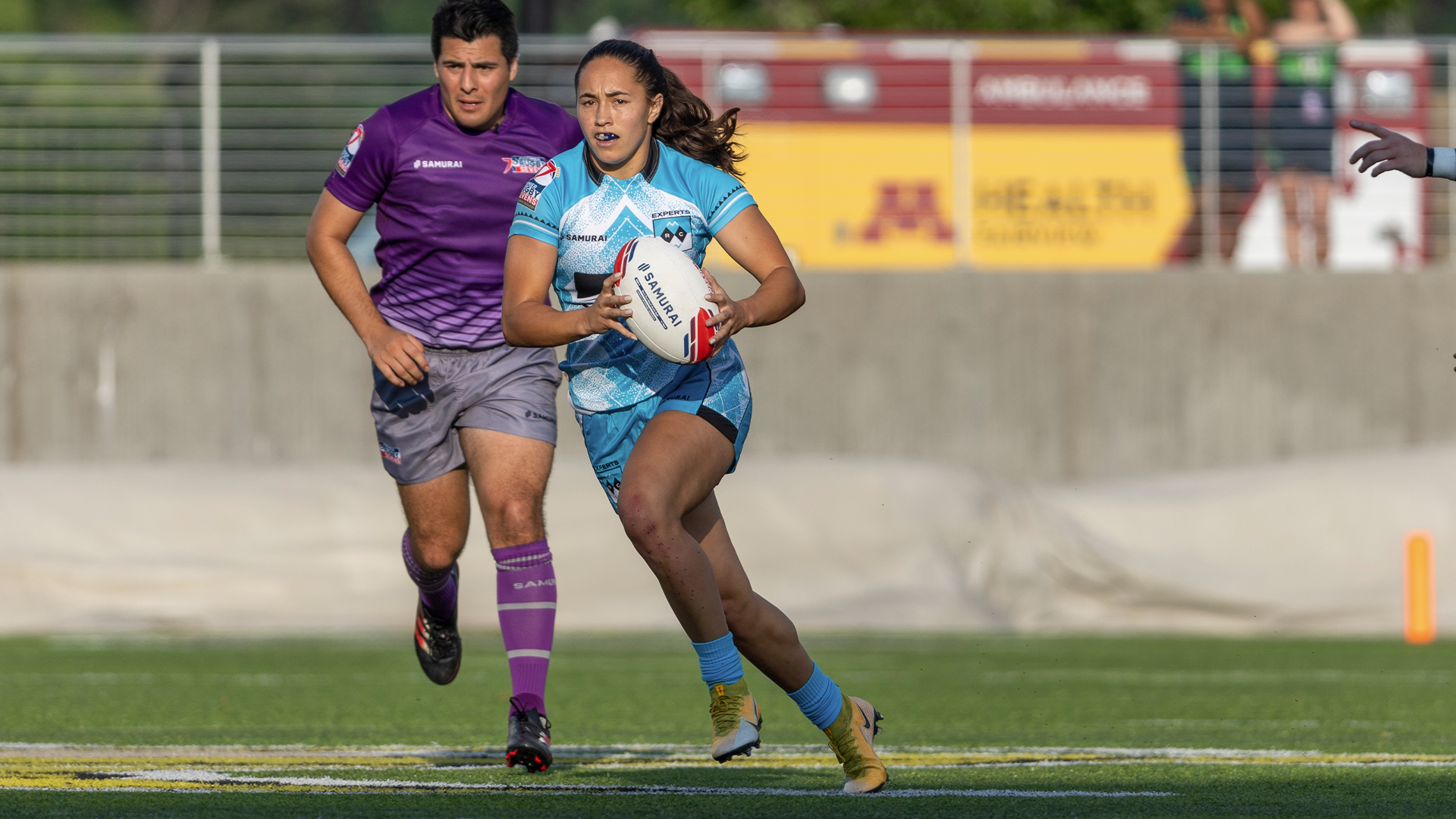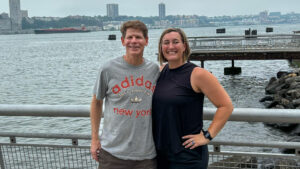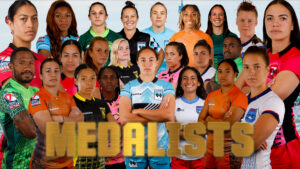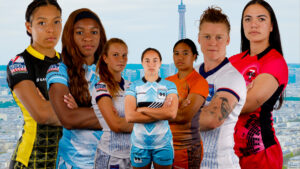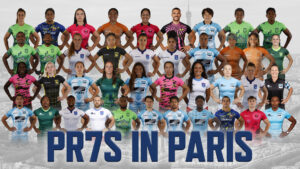While the veterans of the USA Women’s 7s team remain key to the Eagles’ Olympic hopes, there is a youth movement going on, a movement fueled by experience in Premier Rugby Sevens (PR7s).
Sam Sullivan, Jaz Gray, and Spiff Sedrick, to name just three, all garnered important experience in PR7s and that has translated into more and more field time on the USA team, and that was true even when they had already signed on into the USA 7s team residency program.
Sedrick, specifically, has emerged the last few tournaments as a versatile threat who can tackle hard, enjoy contact, set up teammates, and finish.
Playing in PR7s this summer wasn’t a vacation for those players. Even as some other players were looking at PR7s as a step up, this was a test for players in the USA team residency. Head Coach Emilie Bydwell attended the tournaments and tracked players in detail.
“Emilie does actually come to PR7s and watches all our stuff and we get stats and film, and we get one-on-ones where she breaks down our PR7s performance,” said Sedrick, who played for the Rocky Mountain Experts this past summer. “For a lot of people, PR7s is a fun and it’s exciting to play professionally, but the residents were playing thinking ‘OK, selection for this next tournament is related to this.’”
With a warm up tournament in Fiji an important lead-in to World Rugby’s SVNS tournaments in Dubai and Cape Town, the full-time USA residency players knew that selections hinged, in part, on how well a player did at PR7s.
“So you’ve got this feeling of, ‘what is she looking at that I have to show?’” explained Sedrick. “You have players who are super consistent all of the time. For myself, personally, I am not the most consistent player — working on it — so PR7s was something I had to do this summer because I needed more playing time and show that I could maintain what I did from Toulouse through the summer and into Fiji.”
But it’s not just a case of showing up and playing rugby. All of the teams in PR7s have to be assembled, the players have to get to know each other, and a game plan has to be implemented in short order. That was a challenge for Sedrick, too.
“PR 7s is difficult because it’s a week [of preparation],” she said. “There’s not a lot of time to get everybody on a philosophy, on a structure, on a system. We don’t have that many trainings together. I love the idea of professional 7s in the US but you also have the senior national team players, Canadians coming in, girls from Brazil, Fijian girls came out, and aligning schedules to have us together for more than a week is difficult. So you don’t know what’s going to happen.”
More time together can make all the difference.
“We saw how quickly things can turn around, too,” added the 2020 MA Sorensen Award-winner. “My team didn’t win a single game in Minneapolis and then we turned it around and won the whole thing in San Jose; 7s is such a crazy game, anything can happen.”
What has happened for Sedrick is a bigger role in the USA team. Much of that, under the pressure of being watched and being in tough circumstances, is because of the opportunity to show more of what she can do in PR7s.
